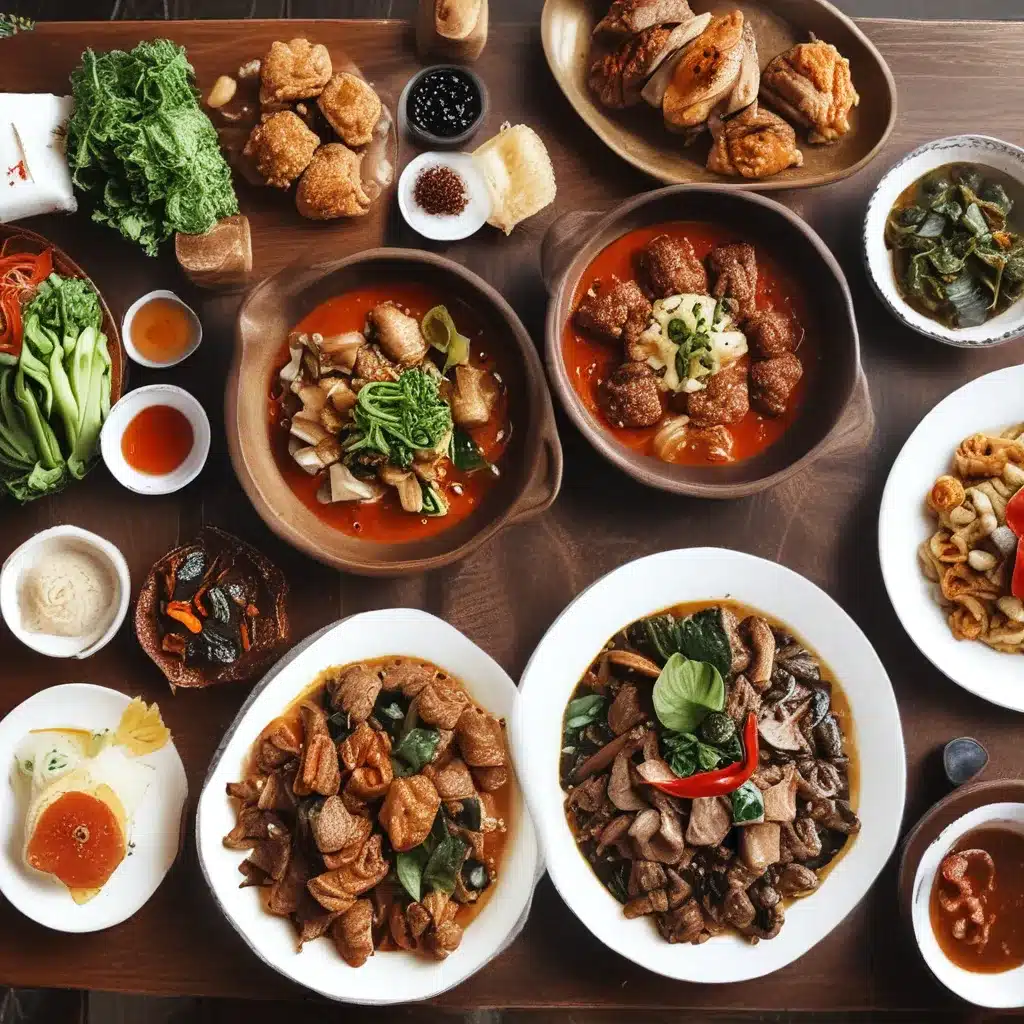
Discovering the Secrets of Seoul’s Michelin-Starred Temple Cuisine
As I stepped through the unassuming doors of Balwoo Gongyang, I had no idea what culinary adventure awaited me. This vegan restaurant, nestled in the heart of Seoul, had been awarded a coveted Michelin star – a testament to the culinary brilliance that lay within.
Stepping into a World of Serenity
The atmosphere at Balwoo Gongyang was one of tranquility and mindfulness. The serene decor, with its clean lines and natural materials, immediately set the tone for a dining experience that was as much a spiritual journey as a gastronomic one.
As I settled into my seat, I couldn’t help but feel a sense of anticipation. The waitstaff, dressed in simple yet elegant attire, greeted me with a warm smile and a graceful bow. They explained that the restaurant’s philosophy was deeply rooted in the centuries-old traditions of Korean temple cuisine, a culinary practice that emphasized purity, balance, and the harmony of flavors.
Exploring the Subtleties of Temple Cuisine
The menu at Balwoo Gongyang was a testament to the restaurant’s commitment to authenticity. The dishes were meticulously crafted, each one a masterful blend of fresh, locally sourced ingredients and age-old techniques.
As I discovered on TripAdvisor, the restaurant’s strict adherence to temple food principles meant that certain “aromatic” ingredients, such as garlic and green onions, were strictly off-limits. The chefs believed that these pungent flavors could “disrupt one’s peace of mind,” which was crucial to the practice of asceticism.
Intrigued, I decided to embark on the “least extensive” menu, curious to see how the chefs would navigate the limitations and still create a dining experience that was both satisfying and enlightening.
A Journey of Subtle Flavors and Textures
As the first course arrived, I was struck by the delicate, almost ethereal nature of the flavors. The dishes had a remarkable depth, despite the absence of some of the more assertive ingredients found in traditional Korean cuisine.
As the blogger from Food Finance Travel noted, the textures were equally impressive, with a wide range of sensations that kept each bite interesting and engaging.
The mandu (dumplings) had a satisfying meatiness, despite being entirely plant-based. The deep-fried mushrooms had a delightfully crunchy exterior that gave way to a tender, almost “meaty” interior. I found myself rethinking what was possible in a vegan meal, as the chefs demonstrated a remarkable level of culinary innovation and creativity.
Balancing Tradition and Modernity
As the meal progressed, I was struck by the delicate balance between tradition and modernity that permeated every aspect of Balwoo Gongyang’s culinary approach.
The restaurant’s commitment to using only the freshest, locally sourced ingredients was evident in the vibrant flavors and textures of each dish. Yet, the chefs had found ways to seamlessly incorporate modern techniques and presentations, creating a dining experience that felt both timeless and cutting-edge.
As Chef Ji Young Kim explained, the essence of Korean temple cuisine lies in its ability to capture the rhythm of the seasons and the harmony of the natural world. At Balwoo Gongyang, this ethos was not just a lofty ideal, but a tangible reality that manifested in every bite.
A Feast for the Senses and the Soul
As the final course, a delicate dessert, was served, I felt a sense of both satisfaction and wonder. The meal had been a true feast for the senses, with each dish revealing new layers of complexity and depth.
But more than that, I felt a profound sense of connection to the centuries-old traditions that had given birth to this remarkable culinary experience. The purity, the balance, and the harmony that permeated every aspect of the meal had left an indelible mark on my soul, reminding me of the power of food to nourish both the body and the spirit.
As I rose from my seat and made my way back to the hotel, I knew that this was more than just a meal – it was a transformative journey, one that had opened my eyes to the wonders of Korean temple cuisine and the deep, abiding wisdom that it embodies.
Conclusion: A Culinary Pilgrimage Worth Undertaking
If you’re seeking a dining experience that transcends the merely physical and offers a deeper, more profound connection to the natural world and the rich cultural heritage of Korea, then a visit to Balwoo Gongyang is a must.
Whether you’re a seasoned vegan or simply curious about the art of temple cuisine, this Michelin-starred gem in the heart of Seoul promises to leave an indelible mark on your palate and your soul. So, embark on your own culinary pilgrimage, and discover the secrets of this remarkable restaurant for yourself.

